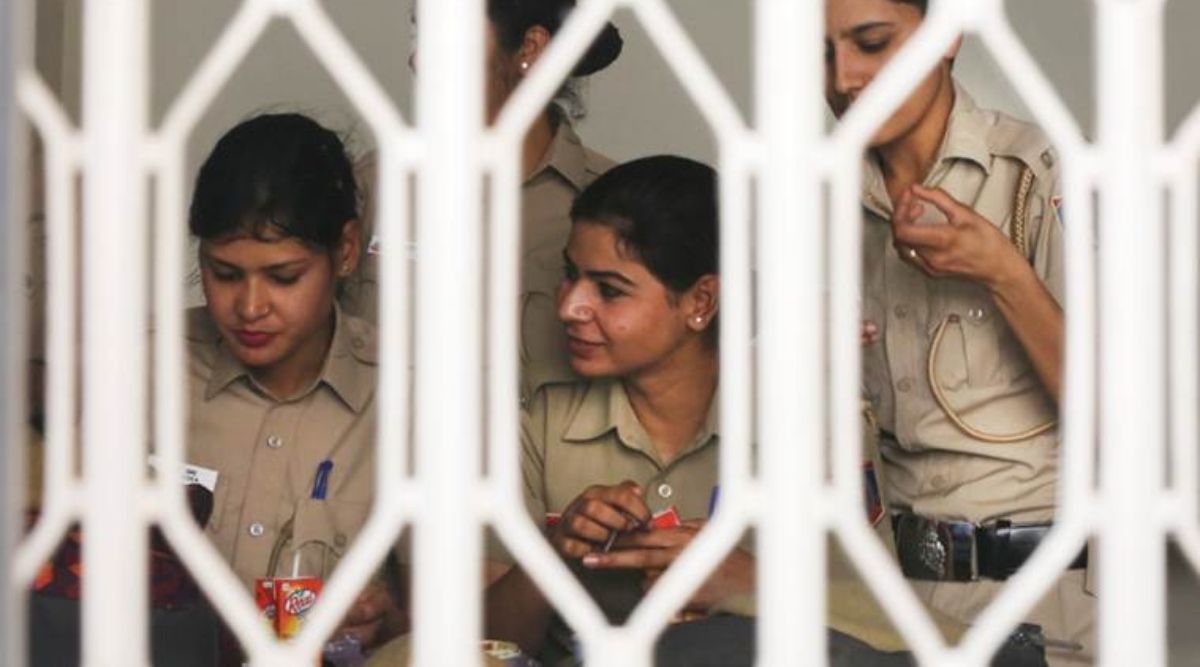 Many police officers reacted strongly against designating women as heads of police stations for a day.
Many police officers reacted strongly against designating women as heads of police stations for a day. On March 8, International Women’s Day, a Commissioner of Police in Tamil Nadu appointed women police officers as “heads” of police stations for a day. These officers held the posts for precisely 24 hours. Getting himself photographed with them, the commissioner said that it is “to recognise, honour, celebrate and cherish the role of women in our uniformed services”.
He is not alone in designing such inane superfluities. Politicians in many states have created “all-woman police stations” and looked for glory, admiration and, of course, votes. You cannot dupe citizens with gestures without substance. Perhaps, some are gullible but ask a citizen who had to travel 10 km to reach the “all-woman police station” to seek redressal when the nearest one was just next door. And this is because the citizen is a woman.
Why can’t we attend to her at the nearest police station? Are we saying that male police officers are not sensitive enough to understand the grievance of a female victim? That they do not have to be trained to investigate crimes against women? Most police leaders feel that creating all-woman stations is unjust to both male and female officers. They give an impression that men in uniform are uncaring, inconsiderate and insensitive and that women officers are capable of dealing with only crimes against women. And we all know that it is not true.
Many police officers reacted strongly against designating women as heads of police stations for a day. One officer said that “it’s time men stopped using women in uniform for photo-ops. The commissioner’s intentions may be honourable but he is unfortunately ruled by his own socialisation”. About all-woman police stations, an officer commented that they “compartmentalise women officers rather than give them the independence of work”. It is “a step in the reverse direction” because women officers are interested in all kinds of police work, not just in women-related matters.
The first all-woman police station was created in Chennai in the early 1990s, when there were hardly any women in the police. It has lost its relevance today, as most police forces in states and Union territories have 30 per cent or above reservations for women. If police and political leadership are sincere in their commitment to the cause of women, they should bring their number to the level of the pledged percentage. As per the Bureau of Police Research and Development, we have only around 10 per cent women in the police. This gap can be filled by conducting special recruitment drives. It may surprise some that there are around 25 per cent women in the Bihar police, the highest among all states. It is followed by Himachal Pradesh with around 19 per cent and Tamil Nadu at 18 per cent. Delhi certainly needs to improve on its ratio of 12 per cent women. Among Union territories, Chandigarh and Ladakh are doing well with above 18 per cent women. Jammu and Kashmir, among the lowest with about 3 per cent women in the police, needs not only urgent recruitment drives but also sensitisation of its political and police leadership about this dismal failure.
However, mere recruitment and induction of women will not suffice. These officers have to be trained well in all police subjects and deputed in both urban and rural police stations. The inclination to post women policepersons in computer sections, counselling cells, reception desks, etc needs to be discouraged. The creation of infrastructure like toilets and changing rooms for women in police stations is a crying need, as highlighted in a study conducted by the Centre for Police Research, Pune (2015-16) on ‘Gender Friendliness of Maharashtra Police’. The women officers who were contacted flagged the need for more cooperation from their male colleagues. They sought leadership training and experience-sharing workshops to sharpen their professional skills. They are keen to lead police stations, divisions, zones, districts and commissionarates — not for a day but on tenure postings.
A greater number of women will change the dynamics of the traditional, masculine and authoritarian way that police stations work. I can foresee some conflicts and adjustments, which are a natural part of any social change. For a smooth transition, training in gender, respecting and cooperating with female colleagues must be an integral part of basic police training. These topics also deserve to be emphasised during refresher courses and in-service workshops. A police station is a cohesive unit and is crucial in providing timely services to citizens. A change in its gender profile shall not disrupt its functioning, if the staff receives appropriate training and regular positive messages from leaders. Hopefully, women will make police stations more honest and transparent in their dealings with citizens.
Women in uniform provide an extremely powerful symbol of positive authority, confidence, empowerment and social change. Let us stop applauding “all-woman police stations”, a meaningless symbolic gesture that is regressive, both conceptually and in practice. Instead, let us induct more women so that each police station in the country has them in adequate numbers to attend to all citizens, including women victims and complainants. And that women’s issues are addressed at the nearest police posts instead of their being sent to specific ones.
The uniform is meant to help and assist all citizens and not to discriminate amongst them based on gender, caste, class or religion. Therefore, it is high time that we discard futile, populistic acts and become authentic in our commitment to knowledgeable, skilled and competent law enforcement.
The writer is former Commissioner of Police, Pune
- The Indian Express website has been rated GREEN for its credibility and trustworthiness by Newsguard, a global service that rates news sources for their journalistic standards.

